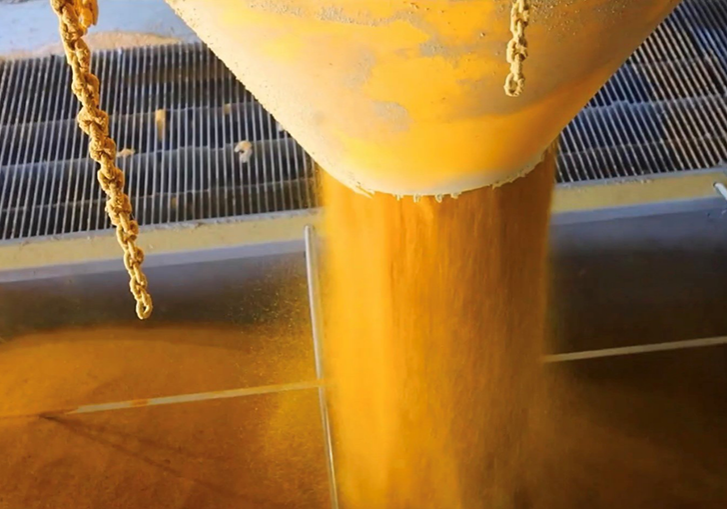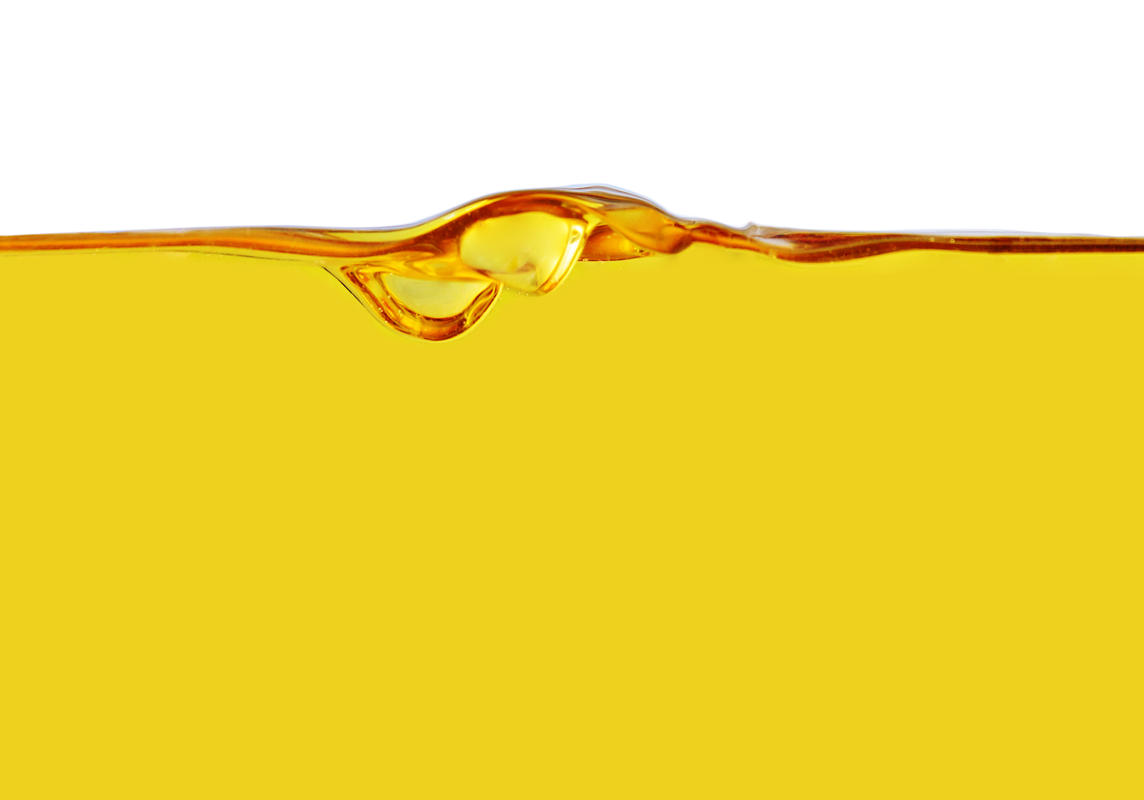
Dried Distillers Grains
The dry mill ethanol production process only uses the starch portion of the corn, approximately 70 percent of the kernel. The remaining components of the corn kernel – protein, fat, minerals, and vitamins comprise what is known as distiller grains. A profitable and in-demand co-product, distillers dry grains (DDG) are used for livestock and animal feed for dairy and beef cattle, swine, poultry, and aquaculture. DDG are an economical replacement for a portion of the feed in an animal’s diet including corn, soybean meal and dicalcium phosphate. On average, 85 percent of all DDG are fed to beef and dairy cattle.
One bushel of corn produces 17 pounds of DDGS as well as 2.8 gallons of ethanol. It takes between 18-20 million bushels of corn to produce 50 million gallons of ethanol and 136,000 tons of DDG’s on average per year.While distiller grains can be fed to animals as either a wet (WDG) or dry feed (DDG). Lincolnway Energy produces dried and wet distiller grains. During the distillation process, liquid is separated from the mash and partially dehydrated into syrup. To create dried distiller grains with solubles (DDGS), the syrup is added back into the dried distiller grains. There are several advantages of DDGS. Drying them increases shelf life and improves the ability for them to be transported over longer distances. For example, the U.S. ethanol industry produces, on average, nearly 90,000 tons of distiller grains each week. While a portion of the distiller grains is sold domestically, a large portion is exported. On average, 600,000 tons a month are exported to countries such as China, Mexico, Canada, Spain, and Vietnam.
Inedible Corn Oil
An emerging co-product for the ethanol industry is inedible corn oil. During the distillation process, liquid is separated from the mash and partially dehydrated into syrup. Removing the crude oil from the syrup before it is mixed with distiller grains creates an additional co-product and revenue stream – inedible corn oil. The corn oil can be used by the biodiesel industry to produce ASTM biodiesel. In fact, biodiesel produced from inedible corn oil has the lowest carbon intensity score of any biodiesel feedstock. Inedible corn oil can also be sold to feed lots and poultry markets among others.


Carbon Dioxide
During the ethanol production process, carbon dioxide gas (CO2) is formed during the fermentation stage of ethanol production. The CO2 gas is then piped to a third party liquefaction plant where the gas is turned into a CO2 liquid. From there, it is sold to other industries including those who manufacture carbonated beverages, process meat or dry ice and can also be used by other food processors and paper mills.
